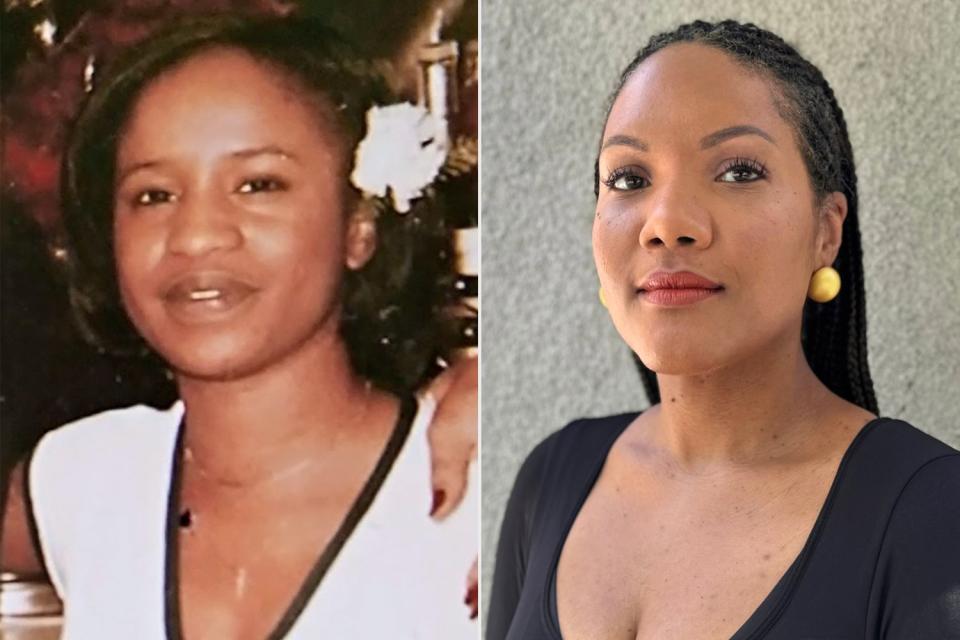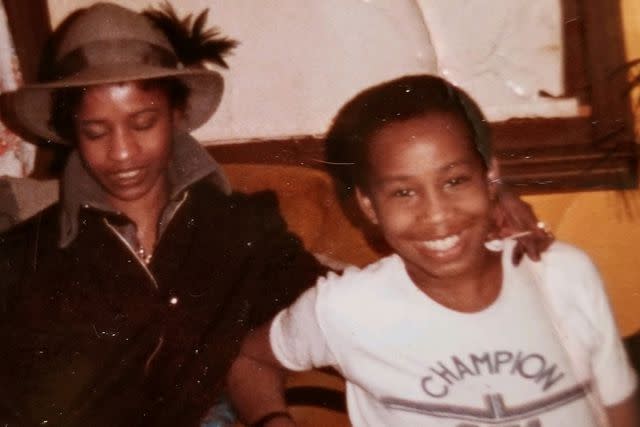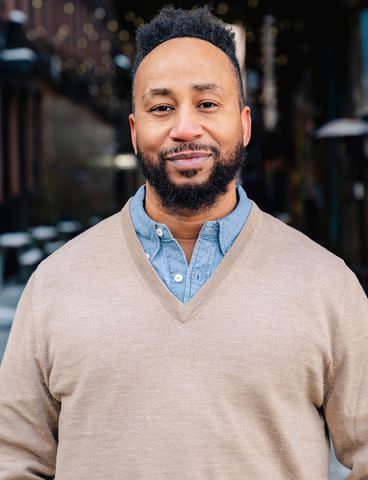NPR's Tonya Mosley Learned She Had a Missing Sister She Never Knew, Then She Set Out to Get Answers
Her family's odyssey for the truth about her long-lost sibling is the basis of a new podcast.

Courtesy Antonio Wiley; Courtesy Tonya Mosley
From left: Anita Wiley ca. 1970s and sister Tonya Mosely in 2024.Fresh Air cohost Tonya Mosley never knew she had an older sister — until a surprise phone call from her nephew
Her sister Anita Wiley had been missing in Detroit since 1987 and Mosley and her nephew wanted to find out why
Their search became a new 10-part podcast, She Has a Name
When Tonya Mosley’s cell phone rang in 2004, she was a young reporter working in Louisville, Kentucky, who had already grown accustomed to having strangers share their intimate and often painful stories with her.
But she tells PEOPLE in this week's issue that this “out of the blue” call from a stranger named Antonio Wiley was different. First she learned Wiley was her nephew. Then he told her that she had a sister, Wiley’s mom, who went missing 17 years earlier and was likely dead. But how?
“That phone call opened up a world that I knew at some point I would be connected to,” recalls Mosley, now 47, who was raised by her mother in Detroit but spent her childhood hungry for details about her absent father’s side of the family. “[I knew] the day would come when I would receive a call that would give me an understanding of these other parts of myself.”
Two decades later Mosley, now the cohost of NPR’s Fresh Air, has transformed the odyssey of her nephew’s search for answers about his mom into a new podcast, She Has a Name. A 10-part blend of memoir and true-crime investigation, it spotlights a mystery but, more important, tells the fuller story of 29-year-old Anita Wiley.
A single parent who was struggling with an addiction to drugs, Anita vanished in the summer of 1987 amid Detroit’s economic collapse and an epidemic of violence and crack cocaine.
“She was a wonderful mother. But she was human,” says Antonio, 51. “She became an adult in a changing landscape in which she was trying to provide for her family.”
In getting to know Anita through her podcast, Mosley — a married mother of two in Los Angeles — better understood how no one is ever just one thing.
“[My sister] was a leader, she was headstrong, but she also was soft and feminine and loved home and hearth with what little she had,” Mosley says. “You get so caught up in the struggle of addiction that you forget the humanity.”

Courtesy Antonio Wiley
From left: Anita Wiley with son Antonio, then 13, ca. 1985 — two years before her disappearance.Not anymore. “These stories like Anita’s need to be told,” says Mosley. “And we’re using this platform to give a voice to the voiceless and help all those other families who have imprisoned themselves in regret and pain for those loved ones they’ve lost.” Adds Antonio, who works in Detroit’s automotive industry: “We wanted to share our journey and also bring others along with us so maybe they can find healing for themselves.”
For more on Mosley and her nephew's search for answers about her sister, pick up this week's issue of PEOPLE, on newsstands now, or subscribe.
The last conversation Antonio had with Anita — who shares a biological father with Mosley, lost her own mother at a young age and gave birth to Antonio at 14 — occurred shortly before her disappearance. As she helped him pack for a weekend visit with his cousins, “I remember her telling me, ‘Enjoy yourself. Have a good sleepover,’ ” Antonio recalls.
When family members brought him back to the tidy home he shared with his mom, Anita was nowhere to be found. Relatives quickly filed a missing person’s report with police, but Anita’s case went cold as the days and weeks passed, and Antonio went off to live with his father and with aunts.
“It felt like my heart had been torn out,” he says. “But it also gave me purpose, making me want to grow up so I could find my mother, because I knew I couldn’t find her as a child.”
In the years that followed, Antonio became consumed with discovering what happened to Anita. He interviewed detectives, dug through records and talked to friends and family in the hopes of finding any bit of information that had been overlooked.
He was doggedly trying to unearth leads in the case when he reached out to Mosley in 2004 after getting her name from Anita and Mosley’s father, with whom Mosley had recently begun speaking.
“I never knew my father growing up, and my mother never talked about him,” says Mosley, a third-generation Detroit native. But she had a feeling he had other kids: As a girl she would dream of a beautiful big sister out in the world.
In a way Mosley knew her name long before her nephew called: “In elementary school, I told people that I had a sister and her name was Anita, and it’s crazy to think that I actually did have a sister named Anita,” she says.

Courtesy Antonio WIley
Antonio Wiley in 2023.After she and Antonio connected, they kept in touch over the years, seeing each other whenever Mosley returned to her hometown. He also kept searching. In 2016 he phoned his aunt to inform her that he’d just given his DNA to police as part of a new program aimed at naming the numerous bodies buried in the city’s cemeteries for John and Jane Does.
“I thought it sounded like a great idea and might actually lead Antonio somewhere,” she says.
Another four years passed before Antonio finally got the news in 2020 that he’d spent more than three decades searching for. A body labeled “Unknown Woman 1987” — who had been buried in an unmarked grave after Detroit firefighters discovered her charred remains in a vacant house that had been set ablaze not long after Anita’s disappearance — was at last identified as his mom, thanks to his DNA.
Within weeks Antonio, a father of five, organized a memorial. “I was able to secure her headstone,” he says. “Now she really does have a name.”
Some painful questions persist: Law enforcement thinks Anita was killed — potentially making her one of 686 homicide victims in Detroit in ’87 — but they don’t know by whom or why. Just finding her, however, has been a salve for her son.
“This sense of being made whole,” he says, “feels phenomenal.”
For more People news, make sure to sign up for our newsletter!
Read the original article on People.


